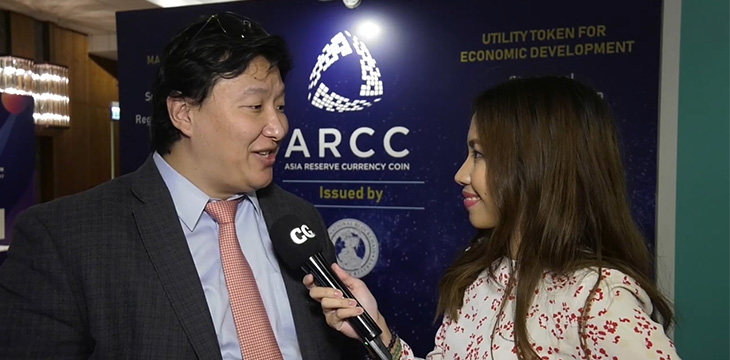|
Getting your Trinity Audio player ready...
|
In an interview with Stephanie Tower of CoinGeek, Sinjin Jung, the managing director of Asia Reserve Currency Coin (ARCC), explained that his organization is looking to drastically change the economy of Southeast Asia, ensuring that the urban working class of the region has a greater chance for success. This, while also looking to wipe out corruption.
Jung explained that while there has been a rapid growth in GDP throughout the region, the urban working class has not felt the benefits of that economic growth.
“We have a whole working group in Southeast Asia that is disenfranchised from the economy of Southeast Asia,“ he said. “In the last 10 years there has been a 66% GDP growth across Southeast Asia but, for the urban working poor, in Bangkok, Manila, Jakarta, their lives haven’t changed at all. People talk about banking the unbanked, but we know that in this demographic group some people don’t even have IDs. Our purpose is to really create structural financial inclusion through distributed decentralized networks and what that means is essentially creating a crypto economy that fits them.”
Jung explained in the interview that there is a greater need to improve the lives of urban workers, but this success will only come if corruption in the region is and it is well. This is one of the primary goals of the ARCC. “If you have corruption it basically disallows for all other forms of economic development. It basically makes everything else inefficient.”
He explains that this is possible. That when a tech-savvy area is able to provide information that is stored and can be used to showcase problem areas, that dramatic changes can occur. “For us what we are really trying to do is really create a reporting system where you have an app where you can go and you can say okay, this road is under construction or we had this many brownouts or we had this many floods…or this is how much my Internet costs and, once you have that kind of baseline data, we can show how it’s changing or not changing.”
This allows citizens to go to politicians and explain their issues because they “have real data to back it up.”
While this sounds like an innovation that could change the region forever, the reality is that it is not going to happen overnight. Jung explained that the project is at least 40 years away from being completed and that the first eight years will be spent on developing baseline information.
However, there is a reality the troubles the executives at ARCC. Something they drastically want to see changed. “There’s no reason in 2019 why Southeast Asia should still be in the emerging market. Other than the fact of corruption and the lack of accountability.”

 02-25-2026
02-25-2026 




